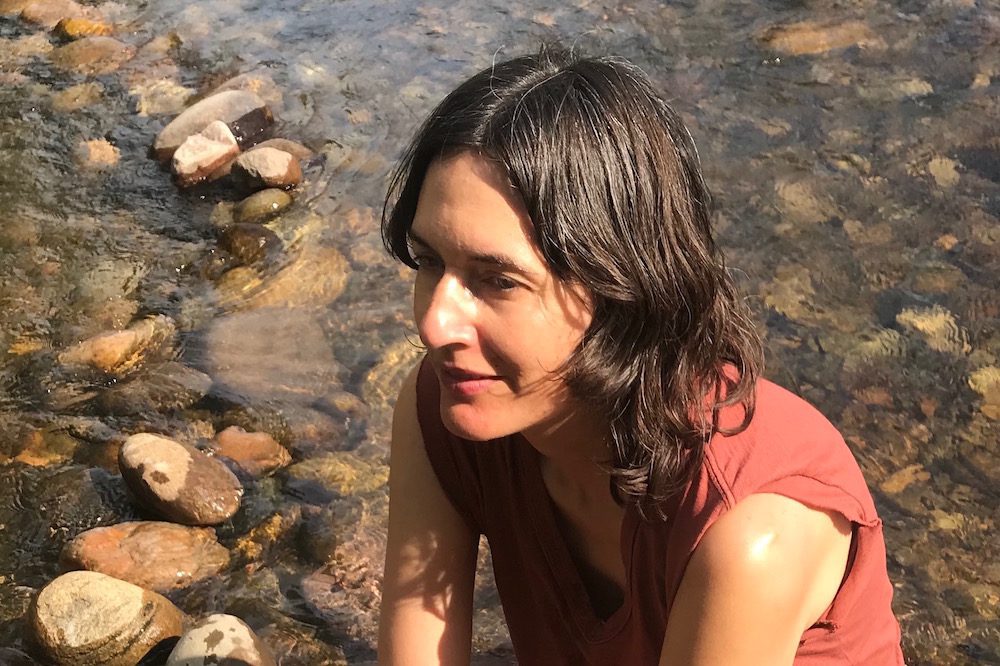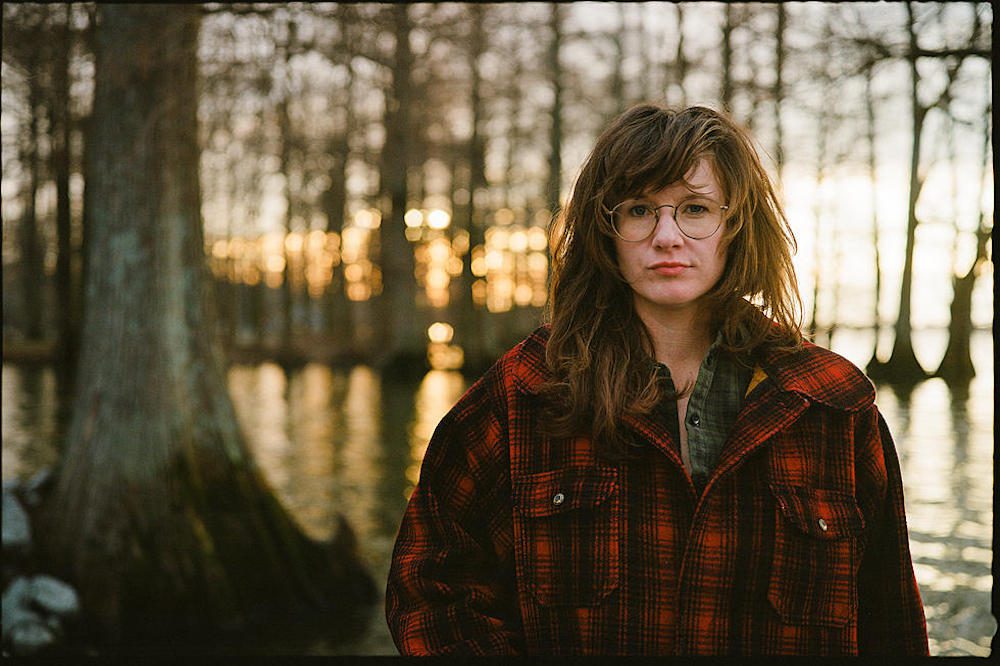

There’s something otherworldly about Josephine Foster’s music. The Colorado-based folk singer creates transcendental states with her voice, and the eight tracks on her latest album No Harm Done are no exception, spanning from a conversation with the holy spirit to meditations on a kingless world.
Foster’s distinctive vocals have both a sweetness and a darkness to them on the album, which was first released digitally in August and comes out on vinyl and CD November 20. Many of the tracks sound like something between witchy spells and spiritual hymns, half-hummed, half-chanted against mystical harp and guitar.
In “Leonine,” her voice swivels and swerves through poetic lyrics — “Leonine lean lean on me/Leonine spring/spring on me” — painting an enchanting picture of a land ruled by no one, “where none is king…and all is blessed lioness.” The song is about “the fantasy of not being ruled by a patriarch, or just a way of life with shared leaders, guides, and more feminine presence,” she says. “It certainly feels like the earth is calling for that stewardship.”
Spirituality is a thread tying the songs on the album together, which for Foster is intrinsic to her art form. “I think the act of singing is spiritual,” she says. “It’s sort of decorating the breath and giving meaning with the words, bringing intention to the breath.”
She considers the biggest theme on the album, however, to be love. Perhaps the best example of this is “Conjugal Bliss,” an erotic love song she’s often played at weddings, featuring delicate harmonies against calm, peaceful guitar. “In he I blend/in me he binds/In he I wed/in me he winds,” she sings, in what sounds almost like a verse out of the Song of Songs.
Foster actually wrote “Conjugal Bliss” after she was separated from her ex husband at the U.S. border and he was sent to Europe. “I was waiting for him to return for a couple months and was thinking about him, and it turned into a song,” she remembers. Despite its overtly sexual subtitle, “69,” the song is also deeply spiritual. “It’s about lovemaking and being entwined with somebody you love,” she says.
“Sure Am Devilish,” a bluesy folk song about “the rise and fall into the same circumstances and learning the same lessons over and over,” was also written a while ago — 20 years ago, to be exact. “Sometimes, you like something and it just sits in the cellar, just like when you harvest grapes and put them down in the barrel, and then you might not want to drink that for a few years — give it a little chance to find its moment of uncorking the bottle,” she explains.
In perhaps the most haunting song on the album, the seven-minute, 21-second “Old Saw,” Foster’s voice operatically soars over the phrase “holy spirit,” addressing this being, “I would like to talk with you.” With an almost freak-folk style, she conjures the image of someone rising from their deathbed, about to commune with the angelic realms. “It’s a dialogue with your soul,” she explains. “It’s funny how we’re able to kind of unify ourselves and also have a duality in ourselves, so it comes and goes, and it’s really just a meditation to try to induce that state; it’s a repetitive series of chords.”
“Old Saw” was unfinished when Foster took it to the studio, then much of it was improvised. “I was surprised and pleased by the little that it has lyrically and harmonically, that it seemed to pass through a threshold and honestly transmitted the spirit of the song,” she says. “And just the repeating of ‘holy spirit, holy spirit’ — when I sing that, it feels so good. It just feels amazingly good to sing that little fragment, and then there’s an acknowledgment of having glimpsed at the whole, my whole self.”
The rest of the album ranges from the piano-driven, almost cabaret-like “Freemason Drag” and “How Come, Honeycomb?” to the country-inspired “The Wheel of Fortune.” Recording the album in producer Andrija Tokic’s analog Bomb Shelter studio, Foster played the guitar, piano, organ, harp, and autoharp and was accompanied by 12-string pedal steel and electric bass by guitarist Matthew Schneider, who she quarantined with in Nashville this spring. Currently, Foster is taking a break from recording new music and enjoying other art forms, like painting and gardening.
It’s been 20 years since she began self-releasing her first albums, including There Are Eyes Above and Little Life, and she feels she’s become more fully realized as an artist since then. “I think over time, you become more and more yourself more deeply,” she says. “That’s the gift of time.”
Follow Josephine Foster on Facebook for ongoing updates.




